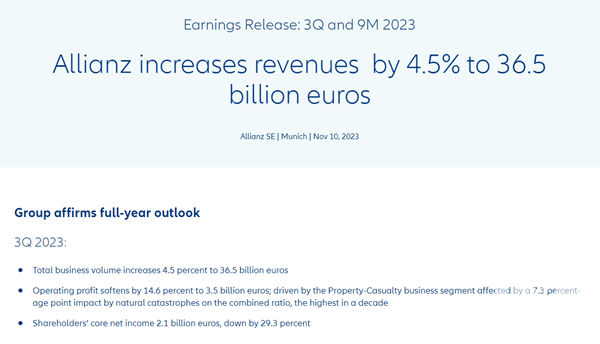October 21, 2023 – Japan experienced a notable economic shift as core inflation in September slowed below the 3% threshold for the first time in over a year, indicating a potential change in the economic landscape. Government data revealed that the core consumer price index (CPI), excluding volatile fresh food costs, rose by 2.8% in September from a year earlier, slightly exceeding market expectations for a 2.7% gain but easing from the 3.1% recorded in August.

The decline in inflation was attributed to falling utility bills, influenced by past oil price reductions, which resulted in inflation dipping below 3% for the first time since August 2022. Although prices of food and daily necessities continued to rise, the pace slowed, indicating a potential easing of cost-push pressures.
While these developments are noteworthy, experts believe that inflation is expected to remain above the Bank of Japan's (BOJ) 2% target until at least the end of next year. According to Marcel Thieliant, Head of Asia-Pacific at Capital Economics, "While inflation weakened in September, we think inflation will only fall below the BoJ's 2% target by the end of next year."
The BOJ's policy meeting ending on October 31 will assess a range of indicators, including this inflation data, in conjunction with producing fresh quarterly growth and price forecasts. The core-core index, a measure that excludes fresh food and fuel costs and is closely monitored by the BOJ, rose by 4.2% in September from a year earlier, indicating a slight slowdown from the 4.3% gain recorded in August.
Despite the current moderation, economists caution against complacency. Shinke Yoshiki, Chief Economist at Dai-ichi Life Research Institute, noted, "There's strong uncertainty on the expected pace of declines in inflation," suggesting that core inflation may not fall below 2% until the latter half of 2024.
There is widespread speculation in the markets regarding the BOJ potentially ending negative short-term interest rates and yield curve control, responding to growing inflationary pressure. The BOJ, however, emphasizes the need for demand-driven increases in inflation before considering significant policy changes.
The real challenge, as highlighted by experts, lies in wage increases and their impact on consumption. Although wage hikes have been witnessed this year, the focus for policymakers remains on whether this trend will continue into the next year and extend to smaller firms across regions.
In light of these developments, the forthcoming release of the Tokyo Consumer Price Index data on October 27 is eagerly anticipated, with a Reuters poll suggesting that core consumer inflation in Tokyo is likely to remain stable at 2.5% in October, reflecting the nationwide figures.

The decline in inflation was attributed to falling utility bills, influenced by past oil price reductions, which resulted in inflation dipping below 3% for the first time since August 2022. Although prices of food and daily necessities continued to rise, the pace slowed, indicating a potential easing of cost-push pressures.
While these developments are noteworthy, experts believe that inflation is expected to remain above the Bank of Japan's (BOJ) 2% target until at least the end of next year. According to Marcel Thieliant, Head of Asia-Pacific at Capital Economics, "While inflation weakened in September, we think inflation will only fall below the BoJ's 2% target by the end of next year."
The BOJ's policy meeting ending on October 31 will assess a range of indicators, including this inflation data, in conjunction with producing fresh quarterly growth and price forecasts. The core-core index, a measure that excludes fresh food and fuel costs and is closely monitored by the BOJ, rose by 4.2% in September from a year earlier, indicating a slight slowdown from the 4.3% gain recorded in August.
Despite the current moderation, economists caution against complacency. Shinke Yoshiki, Chief Economist at Dai-ichi Life Research Institute, noted, "There's strong uncertainty on the expected pace of declines in inflation," suggesting that core inflation may not fall below 2% until the latter half of 2024.
There is widespread speculation in the markets regarding the BOJ potentially ending negative short-term interest rates and yield curve control, responding to growing inflationary pressure. The BOJ, however, emphasizes the need for demand-driven increases in inflation before considering significant policy changes.
The real challenge, as highlighted by experts, lies in wage increases and their impact on consumption. Although wage hikes have been witnessed this year, the focus for policymakers remains on whether this trend will continue into the next year and extend to smaller firms across regions.
In light of these developments, the forthcoming release of the Tokyo Consumer Price Index data on October 27 is eagerly anticipated, with a Reuters poll suggesting that core consumer inflation in Tokyo is likely to remain stable at 2.5% in October, reflecting the nationwide figures.




Copyright © 2023.Yooke studio All rights reserved.
PKWEEKLY NEWS












